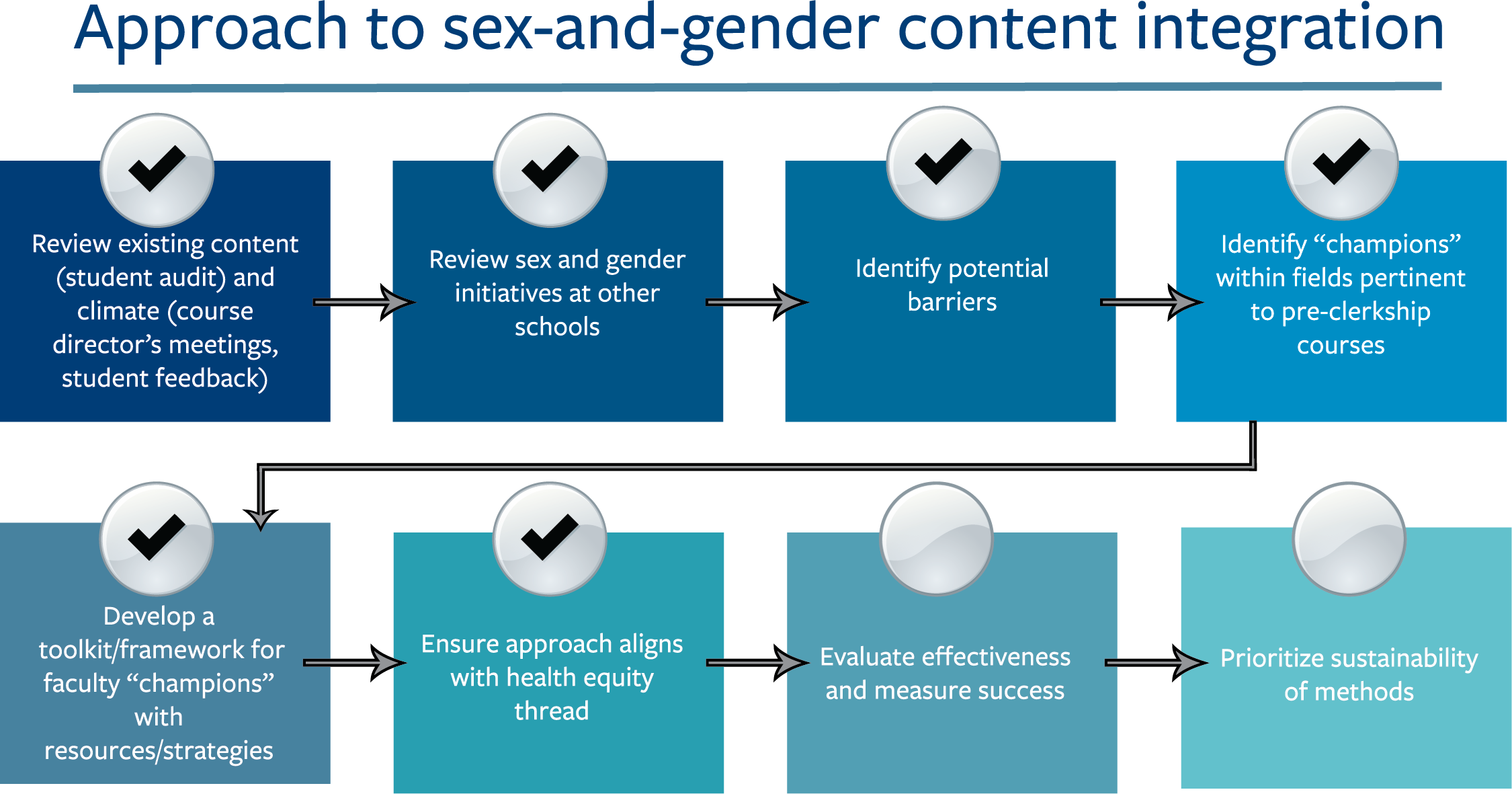Women’s Health Research at Yale has had the exciting opportunity to collaborate with Yale School of Medicine’s Division of Medical Education in determining how best to integrate the emerging data on women’s health and the interplay of sex, gender, and health into the medical school curriculum.
Our goal, in alignment with the school’s health equity thread – the educational effort to ensure that diversity, equity and inclusiveness is integral to the curriculum – is to provide our students with data on women’s health and on how biological sex and the social experience of gender influence health outcomes.
This initiative is designed to integrate new information in regular updates of what is taught in the first 18 months of medical school when our students are learning about biological processes and how they relate to the pathophysiology of disease. Embedded in this learning are implications for understanding how clinical disorders can present differently by sex and gender as well as have differences in disease progression and response to treatment.
Working together as an executive committee on this initiative is WHRY Associate Director of Medical Education in Women’s Health, Kelsey Martin, MD, WHRY Director Carolyn Mazure, PhD, Margaret Pisani, MD, Professor of Internal Medicine (Pulmonary, Critical Care & Sleep Medicine), and Haleigh Larson, a third year Yale medical student, former WHRY undergraduate fellow, and a current member of the WHRY Advisory Council.
Among the productive steps taken – and illustrated in the graphic below– was auditing the hundreds of lectures within the first 18 months of the curriculum to determine where new information can make the most impact. The second step was initiating an ongoing interaction with other medical schools to determine if and how they have approached sex- and gender-based curriculum content, and a third step was identifying obstacles to curriculum change, such as how to bring new data into an already highly comprehensive teaching agenda.
The fourth step has begun to respond to this challenge by our recruiting faculty “Champions” across multiple disciplines to identify relevant data on women’s health and sex and gender differences within their medical specialties. A “toolbox” is also underway, built in collaboration with the Champions and maintained online. It contains a variety of resources on how to locate and use current data to update didactic lectures and patient case-based clinical workshops through a sex and gender-based lens.
“We have an exceptional group of MD, PhD, and MD/PhD faculty, who are experts in their fields, teach within the curriculum, and are passionate about this content,”
Dr. Kelsey Martin said. “All have experience dedicated to the health of women, and we are thrilled to work with this network of women’s health education Champions.”
Given the size and complexity of the curriculum, the number of lectures and lecturers spread across diverse fields of medicine, and the ever changing landscape of scientific knowledge, many students and faculty are consulted. Meetings also are organized among the Champions to share their experience in developing best practices for forging change, and relevant new scientific information is being sorted and reviewed to identify opportunities where new data can be integrated into the curriculum.
Further effort is required to move this important work forward, and next steps are being planned. These include working with the Health Equity Thread to assess whether the curriculum has enhanced student learning about women’s health as well as the influence of sex and gender on health within the first years of medical school. Another step forward will include reflecting on what we have learned in terms of integrating change. For example, “Thinking about how to update the curriculum has led to interesting and engaging discussions on intersectionality – how biological and social determinants of health intersect and how we can expand the curriculum to make it even more equitable,” said Dr. Martin. One other important step being planned is to build a blueprint of our work to share with other academic medical centers.
Through this initiative, physicians will have increased capacity to bring information about the health of women as well as the effects of sex and gender on health into clinical settings, and physician-scientists will include these important considerations in their research as they focus on understanding disorders and seeking new interventions that continue to improve outcomes.
